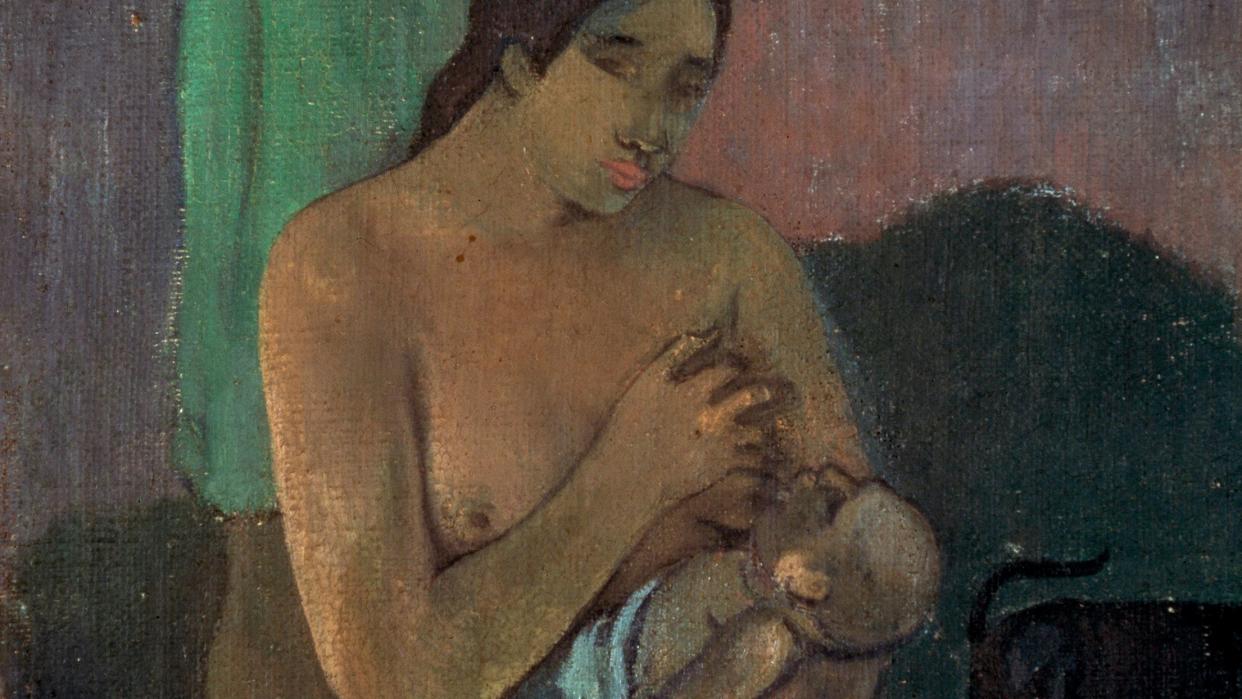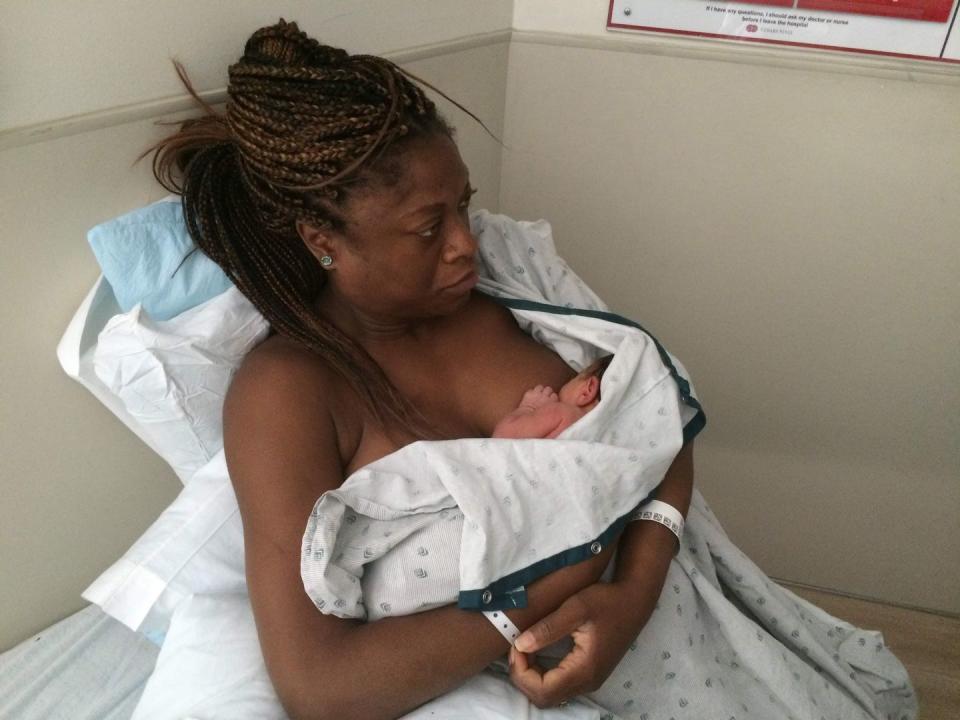My Baby’s Doing Fine, Thanks for Asking. But What About Me?

After I had my daughter, Ava, I realized that everyone is a liar. Especially with social media, everyone wants you to feel like you’re missing out. When talking about becoming a mom, they’ll post things like: “This is the most sensational feeling of my life, “I’m loving every moment, “It’s like my heart is beating outside of my body.”
But when I pushed my baby out, I just thought, I’ve made a mistake. What is the return policy?
I know it’s taboo to say things like this. But nobody tells you that you’ll be in diapers for weeks after giving birth or that sex is painful or that your body, ahem, parts are never the same. (I’ll leave what it looks like to your imagination.) Show me those pictures on Instagram. Put that struggle on Snapchat.
All people seem to care about is whether or not your body returns to “normal.” Everyone kept saying to me: “Wow, you had a baby, and you look exactly the same!” Well, my body snapped back, and my mind snapped; I kept my body, but I lost my mind.

When I became a mom, I went on what I like to call a 10-day vacation at a little resort in Pasadena called the Las Encinas psychiatric facility. I was having what my therapist called “intrusive thoughts.” My mind was playing an endless game of “what if”? What if I drop my baby? What if she stops breathing? What if a monster comes in and steals her?
I was scared to tell anyone these feelings, because I thought they would worry about Ava’s safety. So I kept quiet. Nobody had told me this might happen, and I thought I was going crazy. Mostly, I was ashamed.
When I finally told my therapist what was going on in my head, she didn’t worry about Ava’s safety. She worried about mine. After I gave birth, everyone had been asking, “How’s the baby?” This was the first time someone had asked—or thought—about me. I hadn’t even thought about me.
But my therapist took one look at me and said, “You need to check into a hospital.” My first thought was: Can I sleep there?
The psych ward allowed me to sleep, yes, but really, it awarded me honesty for the first time. That’s what I had been missing. In mom groups, everyone’s so busy competing to be the best mom that you’re not going to interrupt a debate on the texture of poop to be like: “Sometimes I think about abandoning my family… Does anyone else have that?”
Here’s the issue: No one prepares you for what happens after you give birth. In recent years, the attention has rightfully been on ensuring mom and baby make it to the end of pregnancy, especially for Black women. In the U.S., more than half of maternal deaths occur postpartum. One in seven women can experience postpartum depression, but as many as 40 percent of women do not attend a postpartum visit. I read 400 brochures about pregnancy and giving birth, but not one of them warned me about postpartum depression and anxiety. Why aren’t people paying more attention?
For me, and I’m assuming other women of color, postpartum depression and anxiety can feel like a white woman’s issue. We’re taught in our communities to keep it moving. We have to keep going, because we don’t have the luxury to care about our mental health. We need permission to break down.
In the hospital, I found my permission slip to not be okay.

So I wanted to create a space for other women to do the same. I founded Spicey Moms, which works to provide emotional, physical, and informational support that is vital during pregnancy, birth, and especially postpartum. I wanted to create a space where moms feel seen, understood, and validated. Through that work, I was connected to United States of Care. This organization looks at a woman’s maternal care journey not as one relegated to 40 weeks, but 100 weeks, which captures the months of being postpartum. As part of the organization’s work, United States of Care spoke to women across the country, who consistently mentioned that they needed more support after their pregnancy and into the postpartum period. Their stories sounded like mine: health care providers were unavailable, information on postpartum care was hard to find, and no one seemed to ask about their emotional well-being. They felt forgotten. It made me realize my experience was not rare.
And because so few women know that the issues they experience postpartum are normal, I also learned how many women didn’t know the options available to them. I had amazing insurance that covered my therapist, who knew the warning signs and flagged the problems, and insurance that eventually covered my hospital stay. But most women think this kind of care is out of reach. And, often, it is.
Access to postpartum care first starts with having the information and knowing what resources are out there. But then, importantly, it’s about having the insurance coverage to receive that care. Most states have extended Medicaid coverage to one year postpartum, which is a good first step, but what services are actually covered under that care? And what about everyone else who isn’t on Medicaid? Coverage for postpartum care is fragmented as is, and there is no systemic effort underway to ensure women are getting the care they need after pregnancy. We need to change this.
May is Maternal Mental Health Awareness Month. What I’ve learned is that being a good mom means taking care of yourself first. I’ve given myself permission to do that. And I’m giving other women permission to do the same. Remember: You’re not alone; they just lied.
You Might Also Like


